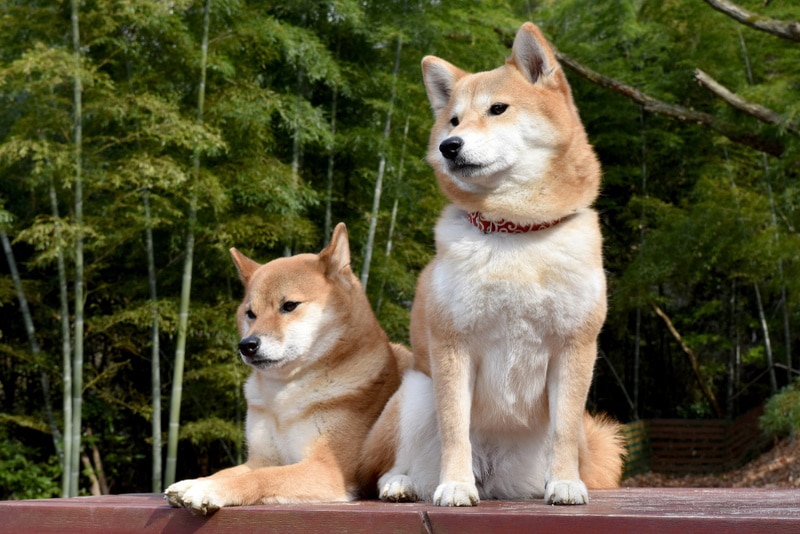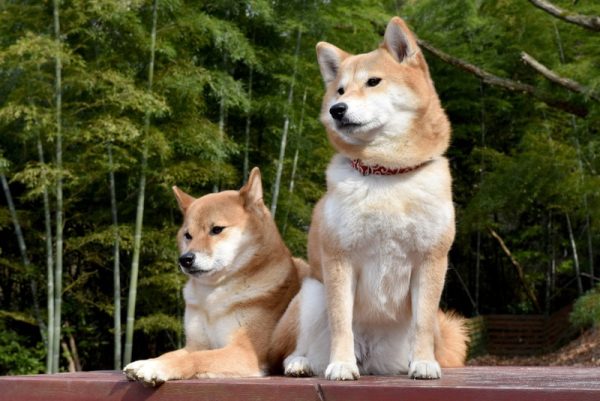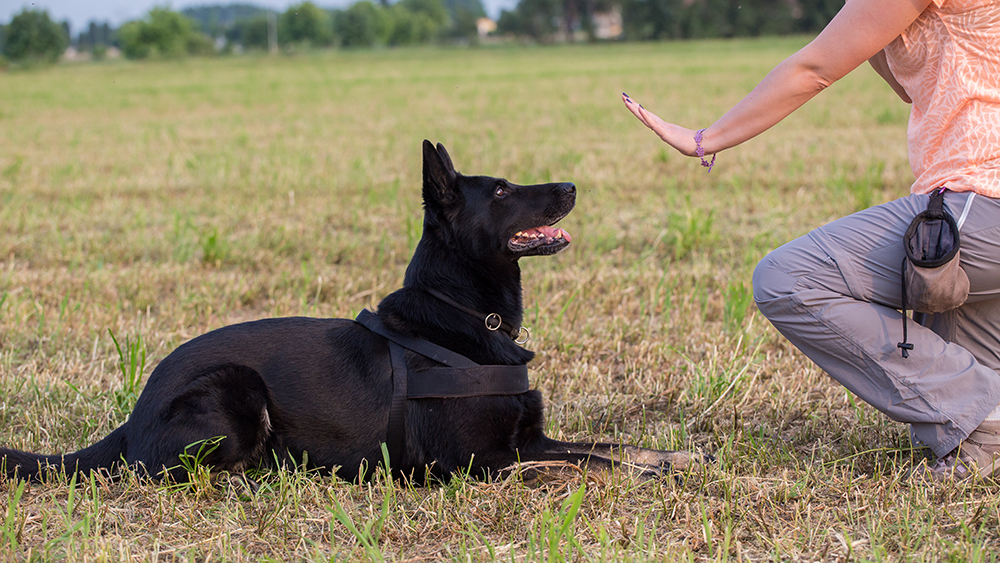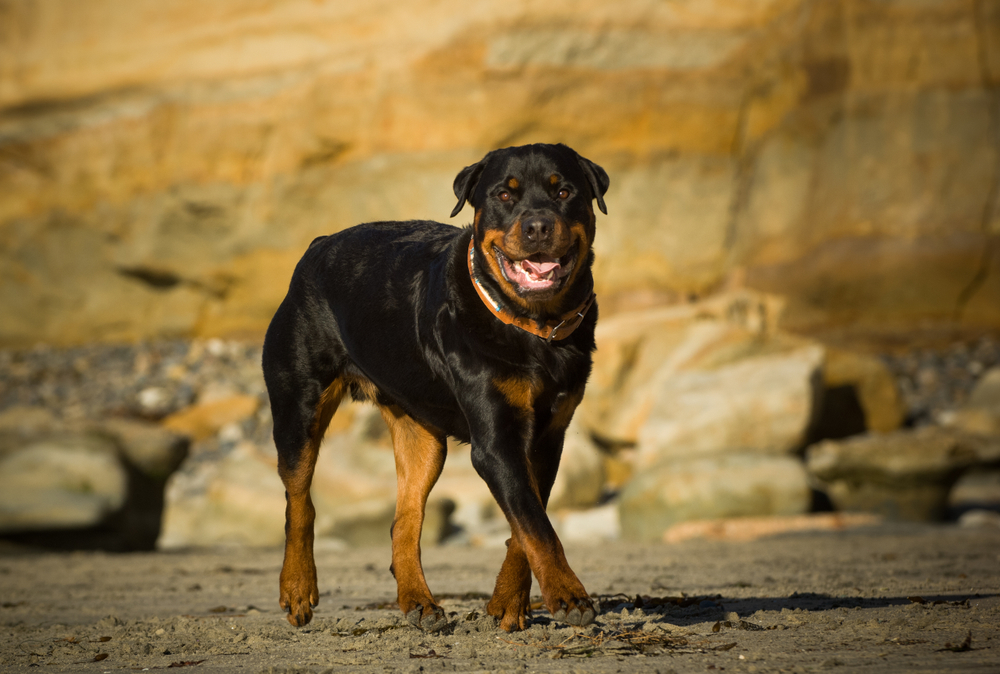Click to Skip Ahead
A Shiba Inu is one of the most adorable dog breeds that may convince you to take them home. However, they are bossy and independent—the very reason they find it hard to get along with other dogs.
However, that does not mean a Shiba Inu does not blend in with any other pet. They do get along with dogs at times, but they may start acting aggressively if they are not always the boss. Thankfully, training and early socialization may help them live peacefully with other members in your house.
If you are about to become a first-time dog owner, this guide discusses everything you need to know about a Shiba Inu. So, let’s dive in.
A Brief Introduction of Shiba Inu
Shiba Inus originally came from Japan and were initially used for hunting. They are small to medium-sized dogs with an independent, alert, and intelligent temperament. However, they can be aggressive and show bossiness in many situations.
Also often referred to as Shiba Ken and Shobe, the modern Shiba Inu were first developed in the 19th century. But the pup’s existence dates back to the Jomon Era in the history of Japan.
Interestingly, this creature was almost extinct in the Second World War. The diminishing food supplies were one of the reasons behind this disaster. However, with the help of some amazing preservation efforts, the dog breed successfully bounced back.
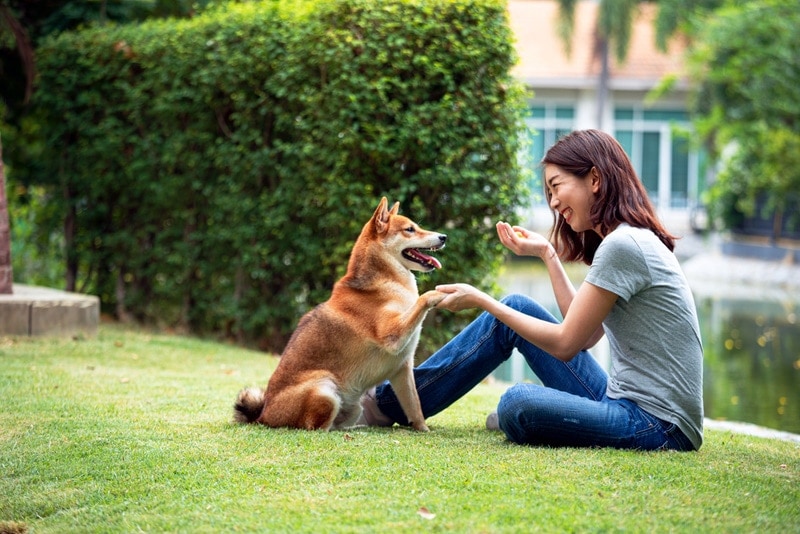
Is a Shiba Inu Dog Breed Aggressive?
Shiba Inus are small and intelligent dogs. They don’t have an intimidating personality but are smart enough to trick you whenever required. They can chase their prey without any support and can also master all commands effortlessly.
Fortunately, it is pretty easy to house-train a Shiba Inu. This dog is always eager to learn and fulfills all requests of their owners.
A Shiba Inu is also playful and agile. They have strong, playful instincts and a body filled with immense energy. They are active, which helps maintain their mental and physical health.
But despite all these wonderful characteristics, a Shiba Inu is aggressive. Since this is a hunting dog, aggressiveness is a common trait in this breed. Due to this, keeping a Shiba Inu with other dogs can become a nightmare.
Is a Shiba Inu Bad With Other Dogs?
Shiba Inus can be aggressive with other dogs. If you have small pets in your home, you will see a Shiba Inu always chasing them. It’s safe to say that these dogs can’t always coexist with other dog breeds.
When keeping different dogs in one space outside your house, you must be cautious with your Shiba Inu. The pup should always be tied with a leash. Alternatively, if you plan to leave them free, ensure to keep the dog in an enclosed area with a roof or else a Shiba Inu won’t shy away from escaping.
Unfortunately, this behavior does make other dogs uncomfortable around this fussy dog. However, early socialization can help.
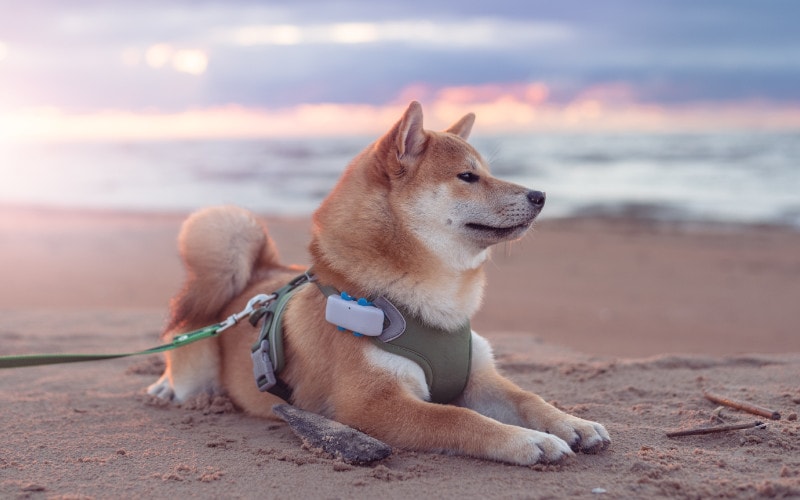
What Does a Shiba Inu Do When Aggressive With Other Dogs?
A Shiba Inu is one of the most stubborn and determined dogs on the planet. In fact, they start to scream in a high-pitched sound when angry or frustrated to scare any dog or cat coming near them.
Interestingly, these dogs are not born aggressive. They have strong predatory instincts and energetic nature, making them violent and wild around other dogs. Even if the dog isn’t aggressive, they like to play rough with other animals, regardless of their size or breed. A Shiba Inu also doesn’t hesitate to bully dogs and cats when needed.
A Shiba Inu only gets along with other pets that consider them their boss. Otherwise, it is tough to coexist with them.
What Dogs Does a Shiba Inu Get Along With?
After reading the above facts, you might think twice before bringing a Shiba Inu home. However, the dog is not as aggressive as you may consider them.
If you already have a Shiba Inu at home, bringing another one won’t be a tough task. Shiba Inus get along with dogs of the same breed.
However, friendly, gentle, and energetic dogs such as Akitas, Golden Retrievers, and Corgis may become your Shiba Inu’s great companions after some time living together. During this period, ensure that you provide proper training to your pet and give enough attention to help a Shiba Inu become a great dog to live with.
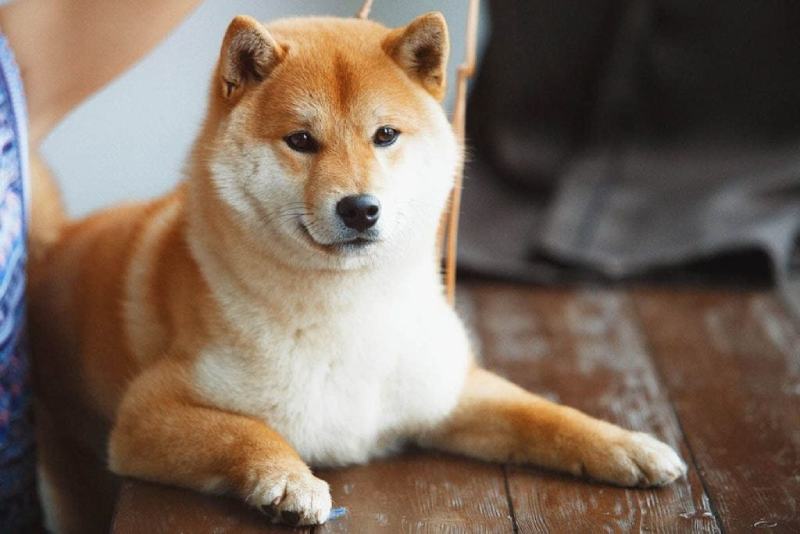
Training Your Shiba Inu
A Shiba Inu is a quick learner, so training your dog won’t be much of a nuisance. But before you help your pet become less aggressive, ensure you understand the pup’s three main features. A Shiba Inu can be loud, fast, and dominant. All these characteristics can make it tough to keep this dog with other pets. Therefore, you should practice the following to maintain a peaceful environment at home:
1. Call Out Your Dog’s Bad Behavior
Make sure you correct your dog’s wrong behavior with a “no” as soon as you see a Shiba Inu misbehaving with other pets. You should be consistent with this practice and avoid shouting or yelling. Instead, if your dog doesn’t listen to you, divert the attention to other activities
2. Involve Your Dog in Regular Exercise
A Shiba Inu may show aggressiveness due to the dog’s excessive energy. You can release it through consistent walking and other activities that help burn the energy and make the dog feel tired.
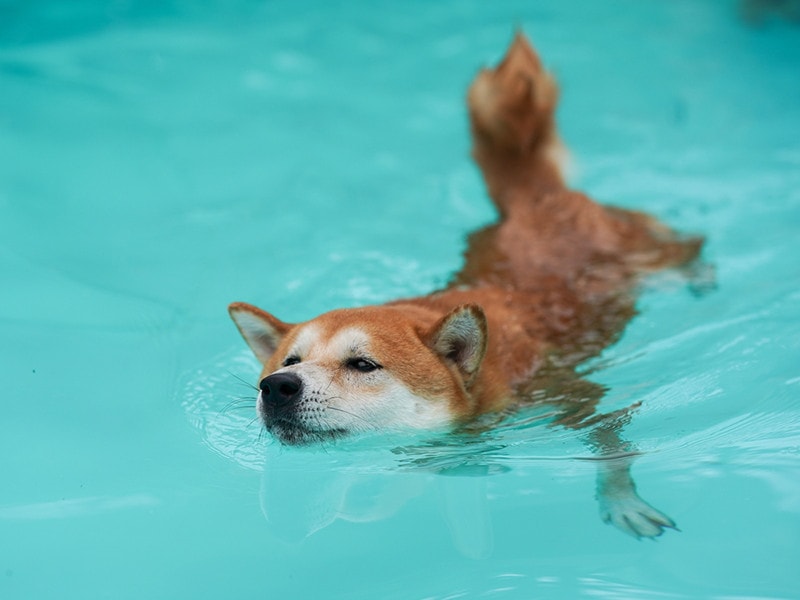
3. Reward Your Shiba Inu for Good Behavior
Everyone loves appreciation, and so does your pet. When you praise or treat them for their good behavior, a Shiba Inu tries to stay calm among other dogs. However, when treating your dog with goodies, ensure to opt for things that are less sweet and with low calories.
4. Practice All Commands Consistently
Keep it simple when training your dog using verbal commands. Use simple words like leave it and sit to help a Shiba Inu understand your requests. Make sure to avoid using an aggravated or angry tone with your dog to upset the pup or make it more angry. Ask your vet about the best approach to training of these unique dogs.
PangoVet. It’s an online service where you can <b>talk to a vet online</b> and get the personalized advice you need for your pet — all at an affordable price!</p>
<p><div class="su-button-center"><a href=https://www.dogster.com/dog-breeds/"https://pangovet.com/?utm_source=dogster&utm_medium=article&utm_campaign=dog_behavior_training%22 class="su-button su-button-style-default" style="color:#FFFFFF;background-color:#FF6600;border-color:#cc5200;border-radius:9px;-moz-border-radius:9px;-webkit-border-radius:9px" target="_blank" rel="nofollow"><span style="color:#FFFFFF;padding:0px 24px;font-size:18px;line-height:36px;border-color:#ff944d;border-radius:9px;-moz-border-radius:9px;-webkit-border-radius:9px;text-shadow:none;-moz-text-shadow:none;-webkit-text-shadow:none"> Click to Speak With a Vet</span></a></div></div></div></p>"}" data-sheets-userformat="{"2":513,"3":{"1":0},"12":0}" data-sheets-validation-definition="{"1":{"1":{"1":23,"2":[{"1":1,"3":{"1":{"1":[{"1":4,"6":1},{"1":1,"2":"="}]},"2":{"1":[{"1":2,"2":"="},{"1":3,"3":1}]},"3":"R1]S"},"4":[{"1":{"1":1,"2":21,"3":0,"4":1,"5":2236944,"6":"841046713"},"2":1}]}],"6":[{"1":{"2":{"1":2,"2":"🍎 Ate or drank"}},"2":{"1":2,"2":676776},"3":{"1":2,"2":12574966}},{"1":{"2":{"1":2,"2":"❤️ Preventative wellness"}},"2":{"1":2,"2":676776},"3":{"1":2,"2":12574966}},{"1":{"2":{"1":2,"2":"🩺 Other"}},"2":{"1":2,"2":676776},"3":{"1":2,"2":12574966}},{"1":{"2":{"1":2,"2":"⚠️ Urinary problems"}},"2":{"1":2,"2":676776},"3":{"1":2,"2":12574966}},{"1":{"2":{"1":2,"2":"👁️ Eye issues"}},"2":{"1":2,"2":676776},"3":{"1":2,"2":12574966}},{"1":{"2":{"1":2,"2":"🛡️ Flea & tick"}},"2":{"1":2,"2":676776},"3":{"1":2,"2":12574966}},{"1":{"2":{"1":2,"2":"🤮 Vomiting"}},"2":{"1":2,"2":676776},"3":{"1":2,"2":12574966}},{"1":{"2":{"1":2,"2":"🐕 Behavior & training"}},"2":{"1":2,"2":676776},"3":{"1":2,"2":12574966}}]},"2":{"1":{"1":[{"1":4,"6":0},{"1":4,"6":1},{"1":2,"3":"CONDITION_ONE_OF_RANGE","4":2},{"1":1,"2":"="}]},"3":"R0]R1]FCONDITION_ONE_OF_RANGE:2]S"},"3":[{"1":{"1":0,"2":1,"3":0,"4":1,"5":1118464},"2":0},{"1":{"1":1,"2":21,"3":0,"4":1,"5":2236944,"6":"841046713"},"2":1}]},"2":"","3":1,"4":1,"6":0}" data-sheets-validation-id="0"> If you need to speak with a vet but can’t get to one, head over to PangoVet. It’s an online service where you can talk to a vet online and get the personalized advice you need for your pet — all at an affordable price!
Socializing With Your Shiba Inu
Early socialization is one of the best ways to help your pup get along with other dogs. It all starts with introducing your Shiba to dogs with a friendly nature. This exercise is imperative to teach your pup how to meet and make new friends and adapt to new environments.
Since this dog has a dominant and loud personality, you may find it challenging to make a Shiba Inu meet a new dog without being dominant. However, you can always start by walking your pup to a park with both loud and calm dogs around.
Practice this strategy consistently so your pet gets used to the changing environment and interaction with new dogs daily. Keep guiding your pup to display good behavior when meeting people and other pets.
If you feel that your pup is reluctant to socialize, don’t force them. In fact, listen to your dog and start fresh the next day. It is also wise not to act tense in such a situation. Shiba Inus are intelligent and might pick the same emotions from you, creating unnecessary problems.
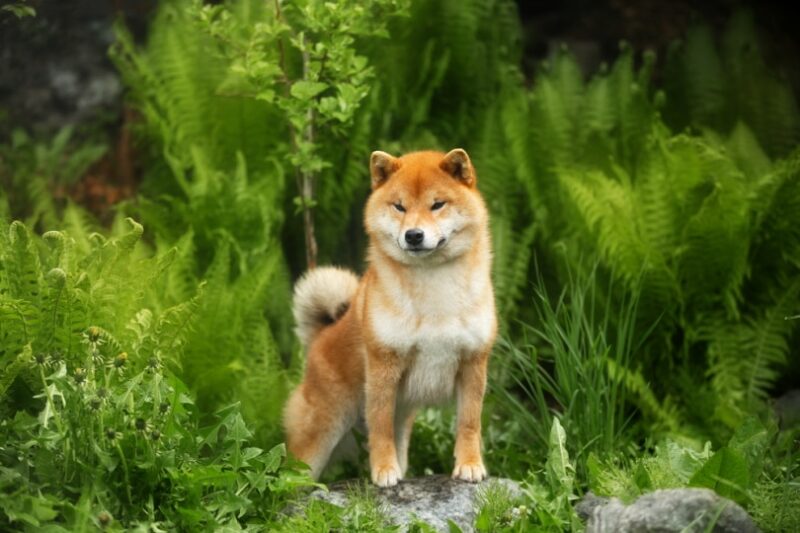
Introducing Your Shiba Inu to a New Dog
It takes time for your Shiba Inu to get friendly with other dogs from the same or different breeds. However, the first introduction matters as they leave a good or bad impression in your dog’s mind.
When introducing your Shiba Inu to a dog from the same breed, choose a neutral ground. Keep a distance between your old Shiba Inu and the new one and encourage the former to show positive behavior.
If any dogs become reactive, tell them not to through a strict command. Do this regularly and keep your dogs in different spaces at home until they are happy with each other’s company.
The first interaction between a Shiba Inu and a dog from another breed can be rough. However, if you are on neutral ground, they will not act as wildly as expected. You can also proceed to introduce the dogs in your yard. Start with ensuring that their leashes are on, which you can gradually remove to allow some freedom.
Ensure to note bad behavior from either side and show strictness where required, but refrain always from hitting or shouting. Make sure that no bullying is involved and that both dogs appreciate the presence of each other with time.
Final Thoughts
A Shiba Inu can be tough to keep, especially when you already have other dogs as pets. This dog breed has a dominant personality and can get aggressive around other animals, despite their smaller size. But thankfully, through early socialization and training, you can gradually change the aggressive behavior of this dog.
Featured Image Credit: MitchyPQ, Shutterstock

